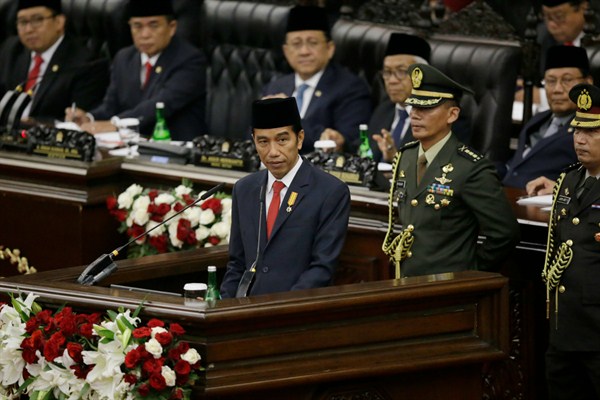JAKARTA, Indonesia—Although political violence there is limited, Southeast Asia has become one of the tensest regions of the world, with a number of governments moving in authoritarian directions. In Thailand, the death of King Bhumibol, who unified the nation while backing the military junta, raises questions about whether anyone can replace him. The Philippines recently elected a populist authoritarian in Rodrigo Duterte, who is apparently determined to sabotage the country’s longstanding alliance with the United States and whose paramilitaries are executing Filipino citizens in the streets in a vigilante drug war. In Myanmar, power is hopelessly divided between longtime democracy advocate and now de-facto head of state Aung San Suu Kyi and the still-powerful military, with prospects for future reform far from clear. In Malaysia, the ruling party continues to struggle from the fallout of a corruption scandal of extraordinary proportions and is making further moves against media and religious freedom.
Contrast all this political uncertainty with Indonesia: The largest country in Southeast Asia and the world’s fourth-most-populous state is led by a popular president who heads a political coalition that controls nearly 70 percent of parliament. Two years ago, Joko Widodo, a modest former mayor and governor who was born in a slum on the edge of the city of Surakarta, took office as a reformist outsider with strong governing credentials, the first Indonesian president not to be either a former general or member of the political elite. Erstwhile political rivals are already lining up to say that they will support Jokowi, as he is popularly known, for re-election three years from now. This would have seemed unthinkable in the months after Jokowi took office, when Indonesia’s elites undermined their new president at every opportunity. But now Indonesian politics appears to have settled into a serene state, with no obvious major sources of disruption until national elections in 2019.
Political stability is usually a good thing, especially when compared with the uncertainty gripping the rest of Southeast Asia. But the small scale of Jokowi’s reforms in his first two years in office suggests he has compromised his governing ambitions in order to gain elite backing. When Jokowi campaigned for president two years ago, he pledged to reform Indonesia’s lagging education system; reign in the country’s sky-high levels of corruption; dramatically increase health care and infrastructure spending; deregulate sectors of the economy to promote foreign investment; and appoint a highly qualified and technocratic Cabinet to see these reforms through. He promised a lot, and it would be unfair to hold him to all of it. But for all the optimism of his presidency, Jokowi’s progress has been disappointingly slow.

